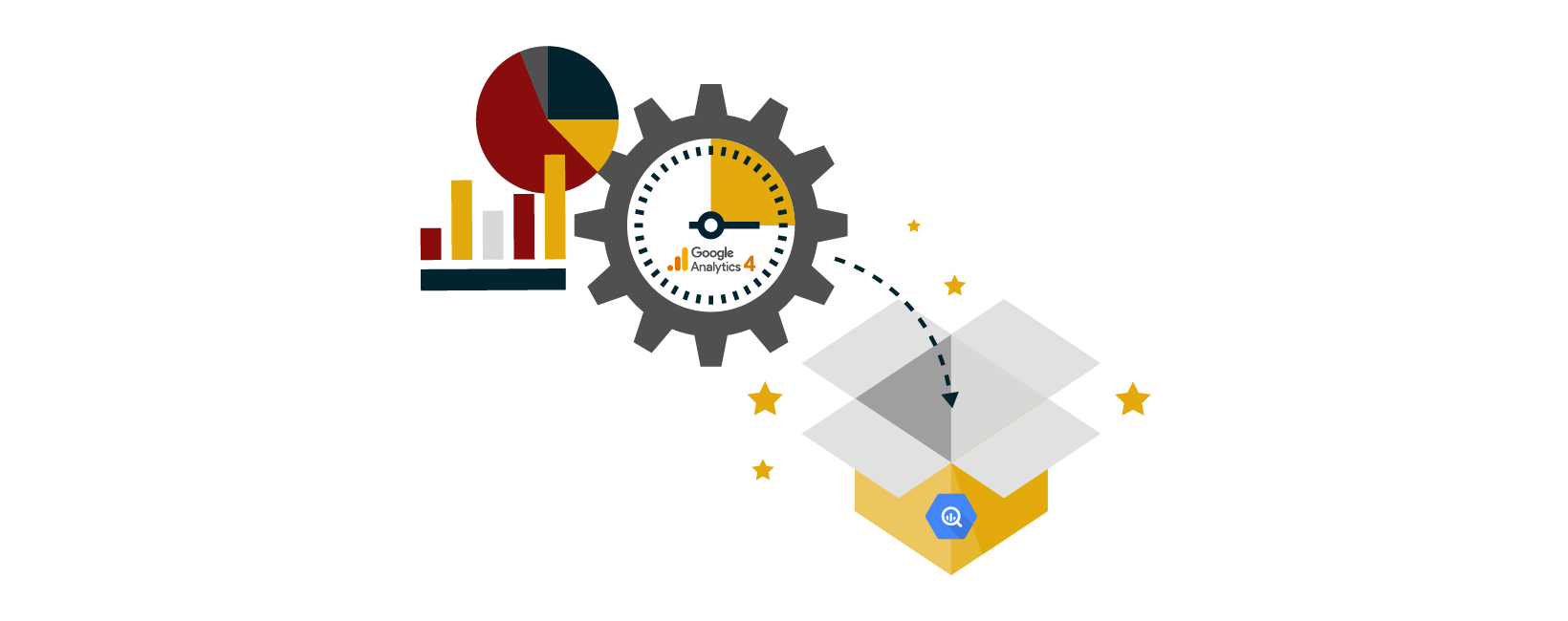 Oct 25, 2024
Persona
Oct 25, 2024
Persona
As marketing teams in colleges and universities strive to attract and enroll the best-fit students, the ability to harness and analyze vast amounts of data to make decisions is a necessity. This is where the powerful combination of Google Analytics 4 (GA4) and BigQuery comes into play.
There are many advantages of BigQuery, but one of the most important reasons to use BigQuery for your GA4 data storage is so you own your data and won’t be hindered by the retention period in GA4. Connecting to BigQuery can seem overwhelming at first, but by following best practices, you can harness the power of big data storage. This integration opens up a world of possibilities for higher education marketing teams, enabling deeper insights and more sophisticated analyses.
What is BigQuery?
BigQuery is Google’s fully managed, serverless data warehouse that enables super-fast SQL queries using the processing power of Google’s infrastructure. Unlike standard GA4 reporting, BigQuery allows you to access raw, unsampled data and run complex queries that go beyond the limitations of the GA4 interface.
Benefits of Connecting GA4 to BigQuery for Higher Education
- Access to raw, unsampled data: Analyze every interaction without data sampling limitations
- Longer data retention: Store historical data beyond GA4’s standard retention period of 14 months
- Data integration: Combine GA4 data with other sources like social platforms and student information systems
- Custom querying: Run complex SQL queries for deeper, more specific insights
- Improved Data Governance and Security: Control over data access and sharing in addition to compliance with data privacy regulations
Best Practices for Using GA4 Data in BigQuery
- Consistent naming conventions: Maintain data hygiene with thorough documentation and file names to ensure clarity and ease of use across teams.
- Partitioned summary tables: Optimizing queries this way not only enhances performance but also helps manage cost by reducing query usage.
- Data security: Use IAM best practices and monitor who has access to the data to stay compliant and secure.
- Communicate between departments: Foster a collaborative atmosphere between marketing and data analytics teams to drive more insightful and actionable results.
Using these best practices will ensure consistent and secure data that benefits the entire institution.
Challenges and Considerations
The first challenge is overcoming the learning curve of a new platform. Google Cloud Platform (GCP) is often used by universities already, and may already have a GCP organization and billing account set up. If that is the case, it may be simple to add a project to the existing organization. However, if the university does not have an existing GCP organization set up, it may require more of a learning curve to get started. Learning the basics of GCP hierarchy, billing, and projects can help you set up your project correctly.
Google documentation can help walk you through setup steps to get started with your GA4 and BigQuery connection. Using Big Query in the console can seem overwhelming if you don’t know how to write SQL code. It is best practice to never connect a Looker Studio dashboard directly to the GA4 event tables. The most efficient way to access large data sets is to create an SQL query to build a summary table of the data. Once your partitioned summary table is created, you can connect Looker Studio to access the data, reducing the need for additional custom queries. Looker Studio creates complex SQL queries behind the scenes.
Another challenge for colleges and universities is monitoring the cost of BigQuery. While powerful, BigQuery usage can incur costs based on query volume and data storage. It is important to stay informed about upcoming billings through threshold alerts and monitoring. Using a summary table with partitions as the data source will also help reduce query costs.
The GA4-BigQuery Connection Opens Doors to Future Possibilities
BigQuery is always adding new features and integrations. These advanced features open new possibilities to advanced data analysis.
- Machine learning models for predictive analytics on student success and retention.
- Real-time personalization of website content based on user behavior and preferences.
- Integration with AI-powered chatbots for enhanced prospective student engagement.
Connecting GA4 to BigQuery empowers higher education marketing teams with unparalleled insights into prospective student behavior and campaign performance. By leveraging this powerful combination with best practices, institutions can make more informed decisions, optimize their marketing efforts, and ultimately attract and enroll students who are the best fit for their programs.
Still overwhelmed with setting up your BigQuery connection to GA4? We’re here to help. Carnegie will help walk you through the process of set up, data visualizations, and data analysis. Reach out and start a conversation.
